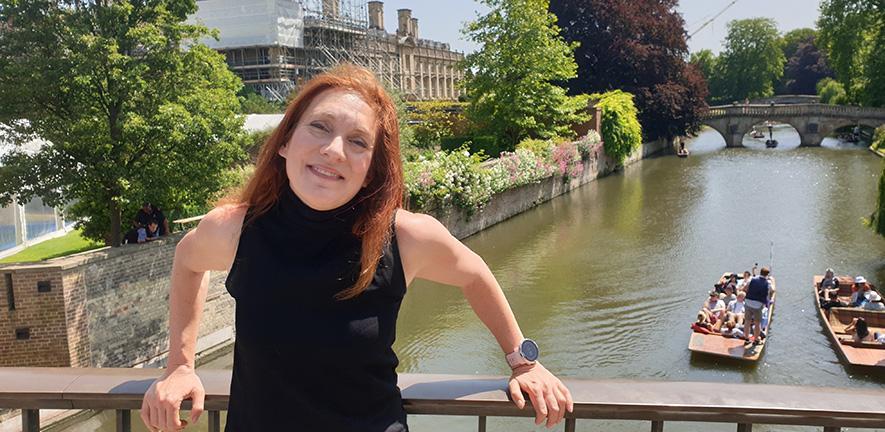
Submitted by Dr C.M. Martin-Jones on Thu, 22/04/2021 - 12:38
Dr Helen Williams, Reader in Geochemistry, at Cambridge’s Department of Earth Sciences and Fellow of Jesus College, has been awarded a prestigious ERC Advanced Grant to investigate the role of magma oceans in defining Earth’s physical and chemical evolution.
Over the next 5 years, Williams and an international team of collaborators will determine how Earth’s early magma ocean crystallized to form the internal structure we see today.
Collisions between planetary bodies in the Earth’s first 500 million years would have released enough energy to cause wholesale melting of our planet – forming oceans of magma which stretched across our planet’s surface and extended hundreds of kilometres into its interior.
The slow cooling and settling of crystals from this magma were a pivotal stage in defining our planet’s internal structure and long term habitability. But there is very little evidence of these magma oceans at Earth’s surface because rocks old enough to contain these ancient clues have been largely recycled by plate tectonics.
The EarthMelt project will tackle this gap in knowledge by developing novel and highly sensitive isotopic tools which can detect these distant magma ocean events.
In a recent publication, Williams reported extremely rare evidence of the chemical remnants of a magma ocean in 3.6 billion-year-old rocks from the Isua Supracrustal Belt, Greenland. The team will expand upon this research, using a range of isotopes to identify crystalline residues from these melting events, together with experiments simulating magma ocean cooling and crystallization.
According to Williams, “Our project will use state-of-the-art isotopic analysis to bring us closer to answering one of the most enduring questions in the geological community: how magma oceans evolved to define the initial conditions and chemistry of terrestrial planets like the Earth, which now sustains surface water, an atmosphere and life. We’ve already found tantalizing magma ocean evidence in Greenland and I’m excited to be able to expand upon this work and explore this enigmatic period of Earth’s history with collaborators across the globe”.
